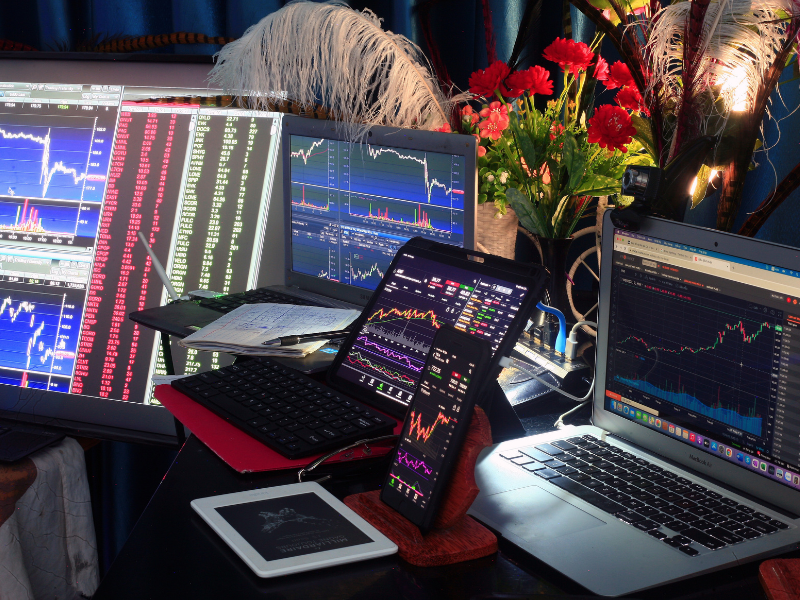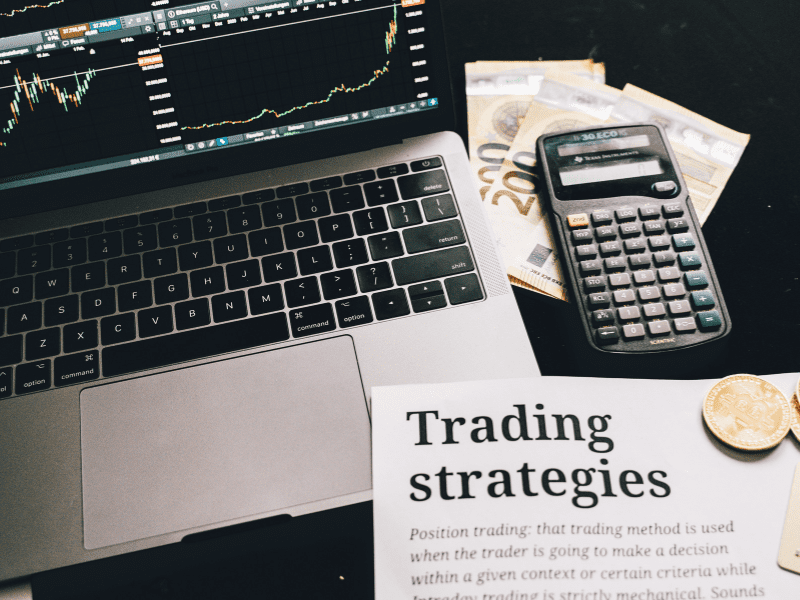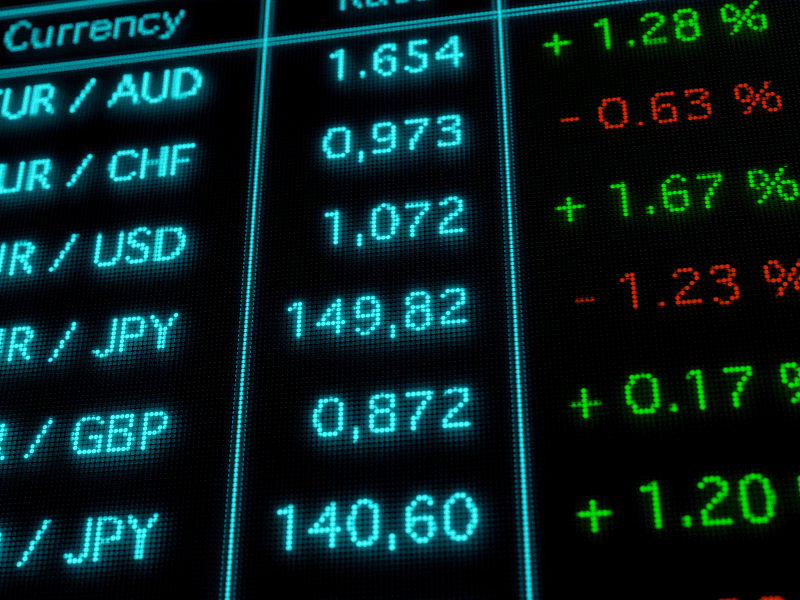A Dive Into The Dynamic and Global Foreign Exchange Trading Market
In the world of foreign exchange trading, also known as forex trading or currency trading. In this section, we will delve into the basics of this dynamic and global market, known as the FX market or forex market.
Foreign exchange trading involves buying and selling currencies to profit from fluctuations in their value. It is a decentralized market where participants trade currencies around the clock, five days a week. With trillions of dollars exchanged daily, forex trading offers immense opportunities for individuals and institutions alike.
Understanding the fundamentals of foreign exchange trading is crucial for anyone looking to venture into this exciting realm. From learning about currency pairs and how they are quoted to understanding key concepts such as leverage and margin, this section will provide you with a solid foundation to navigate the forex market effectively.
Whether you are new to forex trading or seeking to enhance your knowledge, join us on this journey as we explore the basics of foreign exchange trading and equip you with valuable insights that can help you make informed decisions in this fast-paced and ever-evolving market.
When it comes to foreign exchange trading, having a solid strategy is crucial for success. With the ever-changing dynamics of the global markets, traders need to stay ahead of the game and adapt their approaches accordingly. In this section, we will explore some of the most effective strategies for successful forex trading.
One popular approach is technical analysis in forex. This strategy involves studying historical price patterns and using various indicators to make informed trading decisions. By analyzing charts and identifying trends, traders can anticipate potential market movements and time their trades effectively.

On the other hand, fundamental analysis in forex focuses on examining economic factors that can impact currency values. Traders who employ this strategy closely monitor news releases, economic reports, and geopolitical events to gauge the overall health of an economy and predict currency movements based on these factors.
Successful forex traders often combine both technical and fundamental analysis to gain a comprehensive understanding of the market. By leveraging these strategies together, they can make more informed decisions that take into account both short-term price fluctuations and long-term trends.
Additionally, traders need to develop a disciplined approach when executing their strategies. This includes setting clear entry and exit points, managing risk through proper position sizing and stop-loss orders, as well as continuously monitoring trades to adapt to changing market conditions.
Mastering effective forex trading strategies requires a combination of technical analysis, fundamental analysis, discipline, and adaptability. By implementing these approaches with diligence and staying informed about global economic developments, traders can increase their chances of success in the exciting world of foreign exchange trading.
Before diving into the world of foreign exchange trading, it is crucial to consider several important factors that can greatly impact your success in this dynamic market. Understanding the essentials of the forex market, conducting thorough analysis, implementing effective risk management strategies, and selecting a reliable broker are all key elements that deserve careful consideration.
Table of Contents
Essential Concepts and Terminologies for Currency Trading Success
First and foremost, gaining a solid understanding of the forex market is essential. Familiarize yourself with the basic concepts and terminologies associated with currency trading. This includes comprehending how currency pairs are traded, understanding market trends, and being aware of various factors that influence exchange rates.
In addition to market knowledge, conducting thorough analysis is vital for making informed trading decisions. Utilize technical analysis tools to identify patterns and trends in price movements. Combine this with fundamental analysis by staying updated on global economic indicators such as interest rates, GDP growth rates, and geopolitical events that can impact currency values.
While potential profits may be enticing in forex trading, it is crucial to prioritize risk management. Establishing a well-defined risk management strategy will help protect your capital from significant losses. This involves setting stop-loss orders to limit potential downsides and determining appropriate position sizes based on your risk tolerance.
Choosing a reliable broker is another critical factor when venturing into foreign exchange trading. Research different brokers thoroughly before making a decision. Look for brokers who are regulated by reputable authorities and offer competitive spreads, efficient trade execution, robust customer support services, and user-friendly trading platforms.
Embarking on your journey in foreign exchange trading, take into account these important factors: understanding the basics of the forex market; conducting thorough analysis; implementing effective risk management strategies; and selecting a trustworthy broker. By considering these factors carefully at the outset, you will set yourself up for greater success in navigating the exciting world of forex trading.
Whether you are a beginner or an experienced trader, improving your foreign exchange (forex) trading skills and performance is a constant pursuit. The forex market can be highly volatile and challenging, but with the right strategies and mindset, you can enhance your trading abilities.

For beginners, it is crucial to start with a solid foundation. Educate yourself about the basics of forex trading, including understanding currency pairs, market trends, and technical analysis. Take advantage of educational resources such as online courses, webinars, and reputable trading platforms that offer educational materials.
Managing emotions while trading forex is equally important for both beginners and experienced traders. Emotions like fear and greed can cloud judgment and lead to impulsive decisions. Developing emotional discipline involves setting realistic expectations, sticking to a well-defined trading plan, and practicing risk management techniques such as setting stop-loss orders.
Experienced traders should continuously seek opportunities for growth by expanding their knowledge base. Stay updated on global economic news that may impact currency markets. Engage in ongoing learning through advanced courses or workshops offered by industry experts.
Additionally, consider using technology to your advantage. Utilize forex trading tools such as charting software or automated trading systems that can help analyze market data efficiently.
Remember that improving your forex trading skills is a journey rather than an overnight achievement. It requires dedication, discipline, continuous learning, and adaptability to changing market conditions. By implementing these tips into your trading routine, you can enhance your performance in the exciting world of foreign exchange trading.
Essential Strategies to Navigate the Volatility of Forex Trading
When it comes to foreign exchange trading, protecting your investments should be a top priority. The FX market can be highly volatile and unpredictable, making it crucial to avoid common pitfalls that can lead to significant financial losses.

One of the most important steps in safeguarding your investments is understanding the common mistakes that traders often make in forex trading. By being aware of these pitfalls, you can take proactive measures to avoid them and increase your chances of success.
One common mistake is failing to have a solid trading plan in place. Without a clear strategy, traders may make impulsive decisions based on emotions or market fluctuations, which can result in substantial losses. It is essential to develop a well-defined plan that includes entry and exit points, risk management strategies, and realistic profit targets.
Another pitfall to avoid is overtrading or taking on excessive risk. Some traders fall into the trap of constantly seeking new opportunities without thoroughly analyzing each trade’s potential risks and rewards. This can lead to overexposure and significant losses if trades turn against them. It’s crucial to exercise discipline and only take trades that align with your trading plan and risk tolerance.
Additionally, relying too heavily on leverage is another mistake that traders should steer clear of. While leverage can amplify profits when used wisely, it also magnifies losses if trades move in the wrong direction. It’s important to use leverage judiciously and consider its potential impact on your overall risk exposure.
Lastly, neglecting proper risk management techniques is a grave error that traders must avoid at all costs. Implementing stop-loss orders, setting appropriate position sizes based on account balance, and diversifying your portfolio are essential practices for mitigating potential losses.
By understanding these common pitfalls and taking proactive steps to avoid them, you can protect your investments while engaging in foreign exchange trading. Developing a solid trading plan, avoiding excessive risk-taking or overtrading, being mindful of leverage usage, and implementing effective risk management strategies are all crucial elements in navigating the FX market successfully.
The Power of Technology and Automation in a Dynamic Foreign Exchange Trading Industry
In recent years, the foreign exchange trading industry has witnessed a significant transformation with the advent of technology and automation. Automated forex trading systems and AI-powered forex robots have emerged as powerful tools in this ever-evolving landscape.
These technologies have revolutionized the way traders approach the forex market. By utilizing complex algorithms and machine learning capabilities, automated forex trading systems can analyze vast amounts of data in real time, enabling traders to make informed decisions quickly.
AI-powered forex robots take this a step further by incorporating artificial intelligence to adapt and learn from market patterns. These intelligent robots can execute trades on behalf of traders, continuously monitoring market conditions and adjusting strategies accordingly.

The role of technology and automation in foreign exchange trading cannot be overstated. These tools not only enhance efficiency but also minimize human error and emotional biases that often impact trading outcomes. Moreover, they allow traders to access global markets 24/7, providing profit opportunities even during non-traditional trading hours.
However, it is important to note that while technology plays a crucial role in streamlining processes and improving profitability, human expertise remains essential. Traders must possess a deep understanding of market dynamics and risk management principles to effectively utilize these automated tools.
As the foreign exchange industry continues to evolve, we can expect further advancements in technology-driven solutions for forex trading. The integration of AI-powered algorithms with automated systems will likely lead to more sophisticated strategies that adapt seamlessly to changing market conditions.
Role of technology and automation in foreign exchange trading has brought about significant benefits for traders worldwide. Automated forex trading systems and AI-powered robots offer increased efficiency, reduced errors, and expanded access to global markets. However, traders must strike a balance between relying on technological advancements while still harnessing their expertise for successful trading outcomes.
Dedication, Knowledge, and Effective Strategies for Success and Risk Management
The art of foreign exchange trading is a journey that requires dedication, knowledge, and the implementation of effective strategies. While the potential for profitable returns exists in this market, it is important to approach it with caution and a strong focus on risk management.
Successful foreign exchange trading involves understanding market trends, analyzing economic factors, and developing sound trading strategies. It is crucial to stay updated with global events and news that can impact currency values. By continuously learning and adapting to market conditions, traders can increase their chances of achieving profitable returns.

Risk management should always be a top priority when engaging in foreign exchange trading. This includes setting realistic goals, establishing stop-loss orders to limit potential losses, and diversifying investments across different currency pairs. Additionally, maintaining discipline and emotional control are essential traits for navigating the often volatile nature of the forex market.
Ultimately, mastering the art of foreign exchange trading requires patience and perseverance. It is not a guaranteed path to overnight wealth but rather a continuous learning process that can lead to profitable returns over time. By applying effective strategies and managing risk effectively, traders can position themselves for success in this dynamic marketplace.
Also Read: Understanding Market Fluctuations: A Comprehensive Guide to Navigating Volatility

